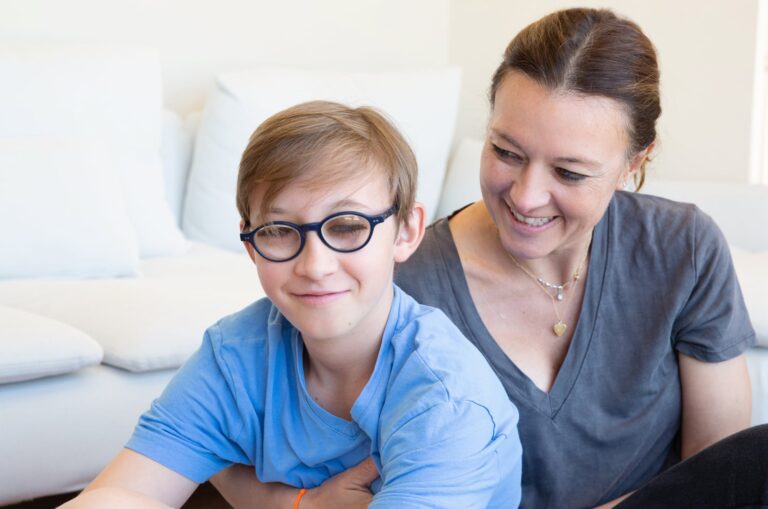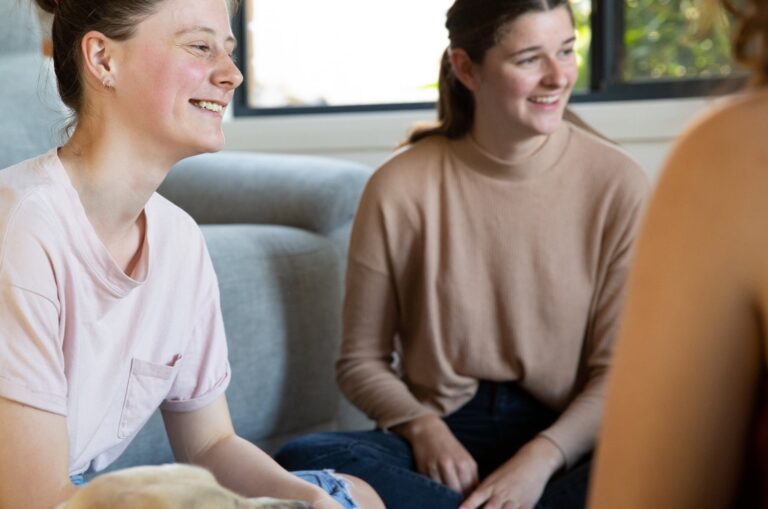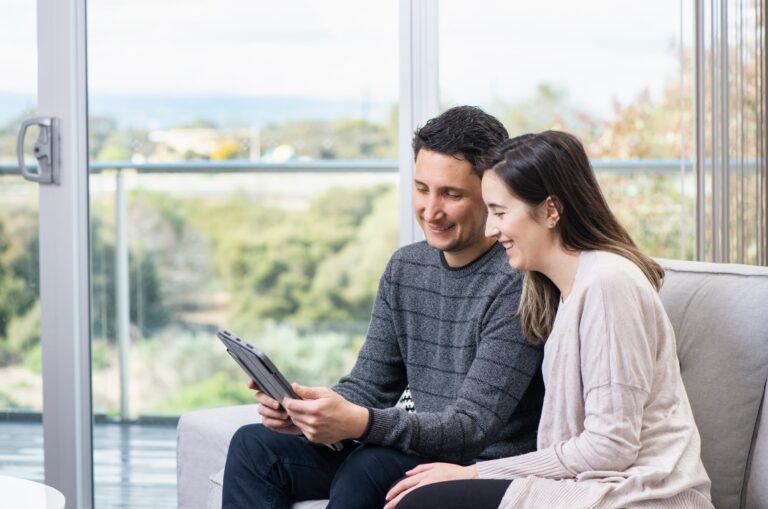Conversations around your vision are varied, often complex and always unique. From receiving a diagnosis to living long-term with low vision or blindness, it can help to understand the types of conversations you might have with different people in your life. Some conversations might seem repetitive, but reframing these experiences can create opportunities for new connections and understanding for you and those around you.
Let’s dive into the benefits of sharing your experience as well as the types of conversations you might have with people.
The benefits of sharing your experience
While explaining your vision to different people can be hard at times, it can help to reframe this in terms of the benefits it can bring to both you and others.
Build confidence in your story and abilities
Each time you share your story with others, you’re not only educating them but reinforcing your own understanding of your abilities and identity. It can help you clarify your strengths, adaptations, and achievements – reframing challenges as milestones in your own journey with low vision or blindness.
Moreover, sharing your story allows you to celebrate your resilience and resourcefulness. It can shift the focus away from limitations and onto possibilities, both for yourself and for those listening.
Achieve an emotional release
When you share your experiences, you bring into words feelings and challenges that might otherwise remain unspoken. Explaining your vision in different contexts might provide an opportunity to release frustrations or fears you may have been holding inside and to feel seen and understood – reducing any feelings of isolation.
Articulating your experience – whether it’s with friends in deep conversations or just short conversations with strangers – can affirm your identity and resilience. Instead of letting misconceptions define you, you take charge of how you’re perceived. This can be an empowering reminder of your capabilities and value, countering any self-doubt.
Help build awareness and appreciation for vision types
Sharing your experience can be a powerful tool for building awareness and fostering appreciation for the diversity of vision types amongst your community.
People might assume that vision loss means complete dependency or a diminished quality of life. By speaking to your experience, you can challenge these stereotypes and show that vision loss doesn’t define a person’s abilities or value.
And with these conversations can come unexpected changes. The smallest of interactions can encourage others to consider the world from a different perspective, understanding how a lack of accessible infrastructure or daily impacts on life could be solved – turning these people into advocates for more accessible spaces and experiences in public.
Types of conversations you might have
Living with low vision or blindness often brings a range of common conversations with different people in your life. Conversations with strangers might follow similar patterns, while conversations with people close to you are likely to be more unique and nuanced.
Family members
Explaining your vision with family members is likely to involve a range of in-depth conversations that cover things from the support you’re seeking in everyday life through to discussing your wellbeing and even planning for the future.
If you’re experiencing a recent diagnosis of low vision or blindness, it can help to consider what sorts of conversations you might want to have with family members. These might include:
- Everyday living – what support might you need and how can you plan together for this?
- Emotional response – you might like to speak about how you’re feeling and how your family members are feeling about your low vision or blindness. These can be some of the most powerful and rewarding conversations you have.
- Services – explore what external services and support you might need and when as well as what support your family members, partners and/or carers might seek.
- Future plans – depending on the nature of your vision, you might want to discuss your hopes and intentions for the future.
- Education – encourage those around you to seek a deeper understanding of what low vision and blindness can mean for different people and how they can support you.
Friends
Similar to with family members, explaining your vision and having conversations around this with your friends will be unique and often in-depth. Your friends are likely to become the strongest advocates in their community because of the conversations they might have with you. These conversations might revolve around the following areas:
- Socialising – you might explore with friends how your vision changes what you might want to do when socialising with friends. Where you might commonly come together for a particular activity, you could explore what other activities you can explore that suit your needs. If you are doing something together, like a concert or sports event, you might want to talk in advance around what you need from them to help navigate the experience.
- Building an understanding – it’s important your friends understand the nature of your vision rather than guess and lead with misconceptions. If your vision is likely to change over time, talking to them about what this might look like can help them accompany you on that journey.
- Exploring what you don’t want to change – this can be a great chance to reflect on what brings you together as friends and how you can both make sure those things don’t change.
Peers
Finding others that share similar experiences can open new pathways to support, growth and understanding as well as new connections.
Peer support groups can range from sports groups through to skills development groups and can be a great outlet for building your understanding of your own vision as well as that of others.
Explaining your vision within a peer group setting can be a unique experience, often accompanied by understanding that those not living with low vision or blindness can’t provide.
Strangers and acquaintances
Conversations with strangers often come with the fact that these people are unaware of your low vision or blindness. This can lead to misunderstandings and sometimes emotionally charged conversations.
In addition to this, these types of conversations can often follow similar patterns, where you might feel you’re giving the same response each time. While this can become tiring, these often-small interactions are also where some of the most positive and delightful moments in your day might come from.
These scenarios can often be the only times in your day where your vision is discussed. This might be where you need to be the most patient and understanding person in the room. But remember, these can be opportunities for connection, delight and to help advocate for understanding in your community.
Learn more
Ready to continue?
Seems like you have filled this form earlier. Let’s pick up where you left off.



